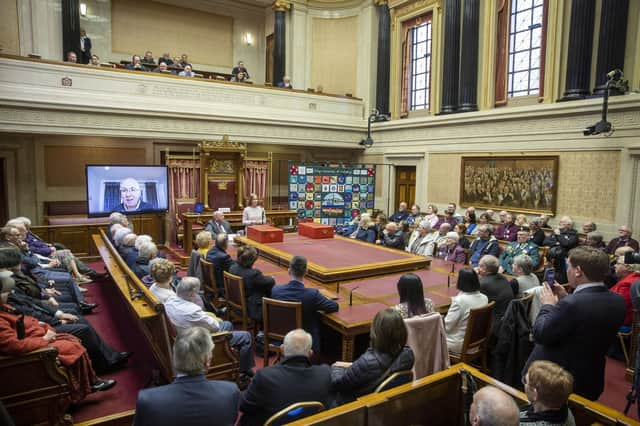Letter: Victims are right about the rehabilitation of terrorists - and I fear that Protestant churches are naive about ex paramilitaries


A Wednesday front page headline in the News Letter last week ('Respect washed away', March 8, see link below), about the Victims of Terrorism Day at Stormont, rightly gave terror victims a platform to express frustration at the massive efforts made to rehabilitate or resurrect the reputations of terrorists, sometimes at the expense of their victims.
I left Northern Ireland in 1992 to pursue a career as a GP. Since returning home to NI in 2005, I note just how much kudos is sometimes given to former terrorists, or the doors which at times seem to remotely or mysteriously open for them.
Advertisement
Hide AdAdvertisement
Hide AdDo senior leaders in our mainstream Protestant churches have very tough questions to answer on this point?


Can ordinary or everyday church members, even after years of solid commitment to a denomination, or acquiring significant academic qualifications or pastoral skills, sometimes find themselves disregarded for church placements or posts in favour of former felons?
Newly qualified ministry trainees have often expressed frustration to me around this very topic.
Is the charismatic-evangelical wing of the Protestant church particularly naive on this point, or prone to disregard academic qualifications (BA, MA or PhD), plus the workplace life experience of mature trainees with decades of secular leadership experience?
Advertisement
Hide AdAdvertisement
Hide AdHave ‘jailhouse conversions’ been placed on a pedestal by gullible church leaders, sometimes with disastrous consequences for the social and spiritual witness of the mainstream Protestant church tradition?
In our local churches, and across wider NI society, there is sometimes an impression of VIP lanes, or rights of access and influence, for people with terrorist connection or association.
The mainstream church emphasis in the past, perhaps understandably or for good intent, was about keeping lines of communication and dialogue open to terror groups or their representatives. There comes a time, however, already with us for many years now, when the emphasis has to be on stopping talking to terrorists.
Church leaders need to start listening to regular people in civic society, who hold everyday employments or perform domestic caring roles for the elderly and young.
James Hardy, Belfast BT5